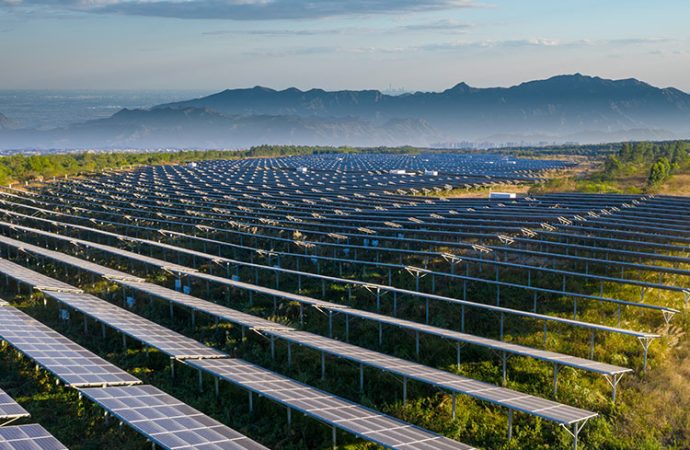Author Recent Posts Shizra Batool Latest posts by Shizra Batool (see all) War Crimes Committed by Israel in Palestine: Duality of West and International Humanitarian Law (IHL) – November 8, 2023 Parliament vs. Judiciary: lack of institutional independence – October 16, 2023 RISING COST OF FUEL AND ENERGY – A THREAT TO HUMAN SECURITY –
The rise in global disruption and the country’s own political and economic crises are driving the country toward energy insecurity. Energy market took a drastic change in 2021 because of rapid economic recovery that had been delayed by pandemic. The situation exploded into a full-fledged worldwide energy crisis after Russia’s invasion of Ukraine in February 2022. Russia’s war in Ukraine has triggered a fundamental shift in its energy trading relationships with the rest of the globe.
Pakistan’s energy industry is in cries due to a shortage of energy supply to meet the country’s rising demand over the last few decades. Energy insecurity is based on whether a country is self-producing the energy for its requirements, whether it imports the energy or whether it is an exporter of the energy to other countries. Energy self-producing countries always have available, accessible and affordable energy all the time. Industries, organizations, and infrastructure all rely largely on a consistent and reliable energy supply any disruption in energy supplies can cause economic instability, job loss, and a drop in living standards.
Similarly, if it is an exporter than the country’s energy security depends on its capacity to keep the supply and demand high. And if it is an importer, it must exert influence over energy pricing and global energy markets while also attempting to maintain a positive balance of payments. Pakistan’s energy sector is significantly reliant on imported fuel (oil and LNG) and will remain so for the next 10-15 years. The conflict between Ukraine and Russia has caused fuel prices to soar, endangering the supply chain and making it difficult for Pakistan to support the efficient running of its power plant. The price of natural gas reached all-time highs, and as a result so did electricity in some markets. Oil prices hit their highest level.
Energy crisis has pushed Pakistan into economic decline. The energy crisis in Pakistan has had a significant impact on the economy and society. It has caused economic losses, decreased access to health care, and increased poverty rates. It has also impacted social structures. The lack of energy has reduced agricultural productivity which contributes significantly to Pakistan’s GDP. Inflation rates are not only bringing down the GDP growth rate that has affected adversely the productive capacity of the economy and the employability of the private sector but also decreasing the purchasing power of people.
Fuel prices and food security have a direct relation. Higher oil prices increase the cost of energy for agricultural supplies and production which raises the price of basic food. This is a well-known global phenomenon as fuel oil prices rise, GDP growth rates fall and inflation rises. It also has an impact on consumer goods, transportation, agriculture, industry, and factory raw material purchases. Fuel price increases also have an impact on food distribution.
Another reason contributing to energy crisis is a lack of investment into nation’s power grid. Pakistan has not invested enough into new power generation projects which leading to a shortage of electricity. A massive portion of Pakistan’s power generation capacity is from old and inefficient power grid which consumes more fuel and produce less electricity. Pakistan has been facing fuel shortage for power generation, which leads to power outages and load shedding. Political instability and lack of continuity in policies have led to the neglect of power projects and lack of investment.
Unfortunately, the government is not really keen in new power generation projects. Pakistan has never developed any strategy to overcome this issue. The ongoing energy crisis is not sudden at all, it was a long time in process, and would be better to be prepared for it.
Human security is immediately threatened by high energy and food prices, and unfortunately Pakistan failed to find a relevant solution. When it comes to the facts, there is no easy fix. Because people are already suffering from inflation, energy conservation is the only rapid way to overcoming energy shortages. Additionally, experts suggest conservation of energy in more tactical ways to overcome this crisis.
We can use Bangladesh as an example and we should learn from their energy saving and conservation practices. Overburdening people by raising costs is not the answer.
Pakistan has enough installed capacity to satisfy current demand, but only if it operates continuously to maximize output. Pakistan’s energy policymakers can play a significant influence in this matter if they work together to develop a clear approach. If Pakistan’s elected officials genuinely want to lead the country towards betterment and prosperity, ending the energy crisis will be the first step. However, if this chain of selfish interests and poor policies continues, the energy crisis will quickly turn into an energy catastrophe.
- War Crimes Committed by Israel in Palestine: Duality of West and International Humanitarian Law (IHL) - November 8, 2023
- Parliament vs. Judiciary: lack of institutional independence - October 16, 2023
- RISING COST OF FUEL AND ENERGY – A THREAT TO HUMAN SECURITY - September 15, 2023





















Leave a Comment
Your email address will not be published. Required fields are marked with *